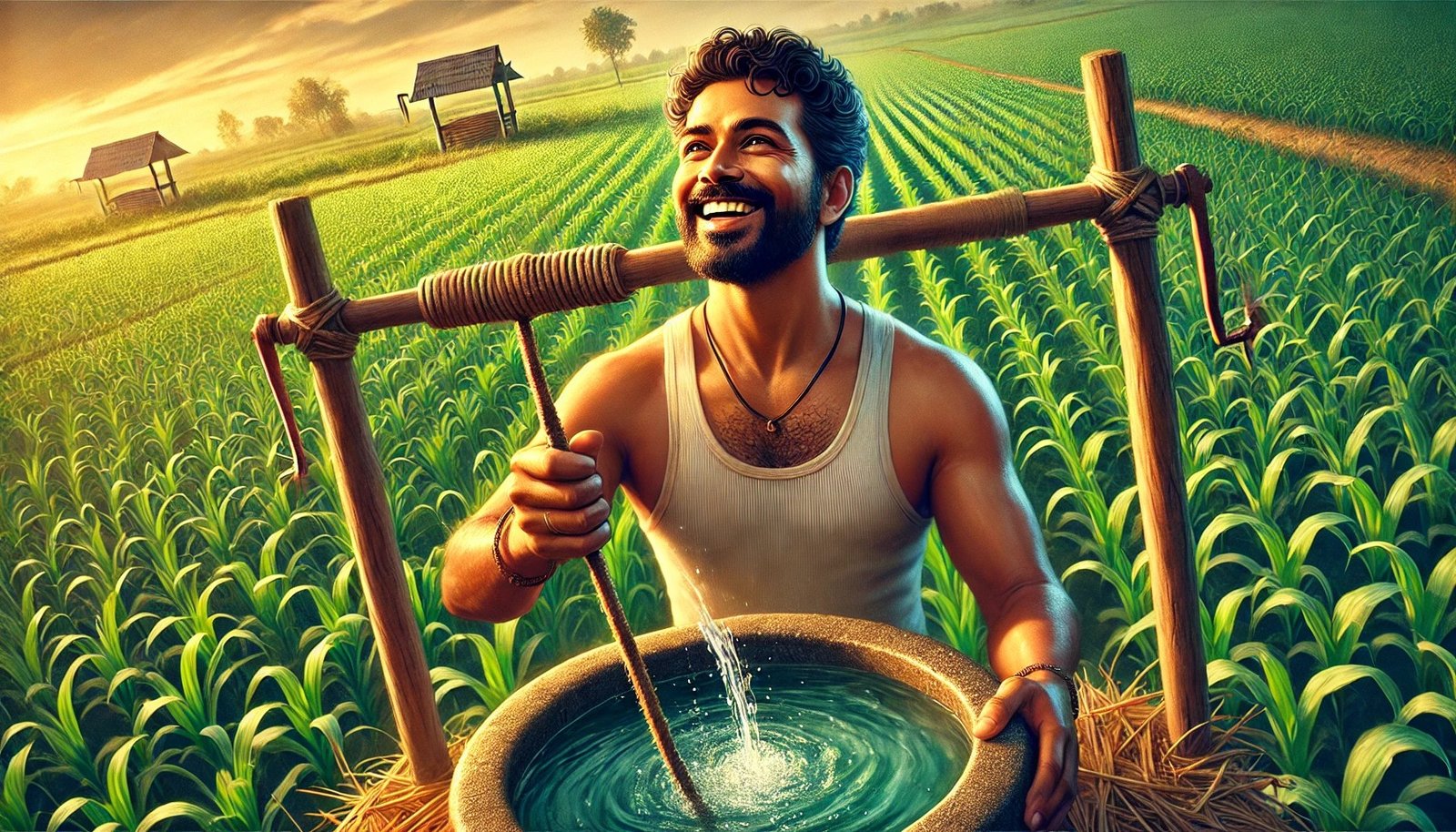The Well of Justice
Once upon a time, in a quaint village nestled at the foot of a grand mountain range, lived a hardworking farmer named Ravi. Ravi was known throughout the village for his dedication to his land and the bountiful harvests he produced each year. His fields were the pride of the village, providing food for many, and he tended to them with unwavering care. However, as the years went by, Ravi noticed that the water in the stream he relied on for irrigation was slowly dwindling. The rains had been sparse, and the water levels had dropped significantly. Worried about the future of his crops, Ravi realized that he needed a more reliable water source to keep his farm thriving.
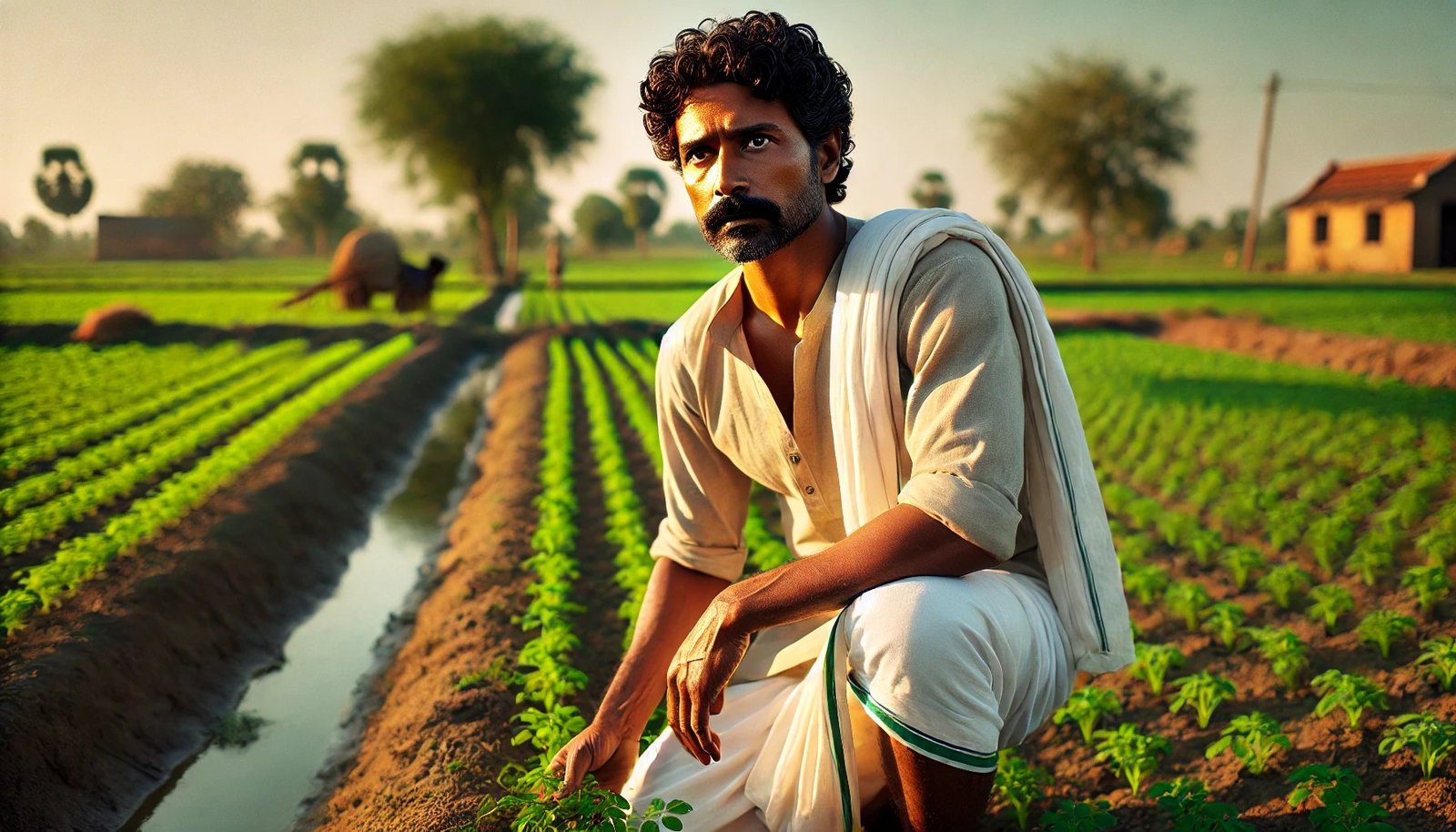
One day, Ravi heard that his neighbor, a cunning and wealthy man named Bhola, was selling a well. The well was located on a piece of land just adjacent to Ravi's farm, and it was known to be deep and always full of clear, cool water. Ravi thought this was the perfect solution to his problem. If he could purchase the well, his crops would be safe, and his farm would continue to flourish.
Excited about the prospect, Ravi approached Bhola and inquired about the well. Bhola, always looking for ways to increase his wealth, saw an opportunity in Ravi's desperation. He agreed to sell the well but at a steep price. Ravi, knowing the value of a reliable water source, scraped together all his savings and handed them over to Bhola, who smiled slyly as he counted the coins.
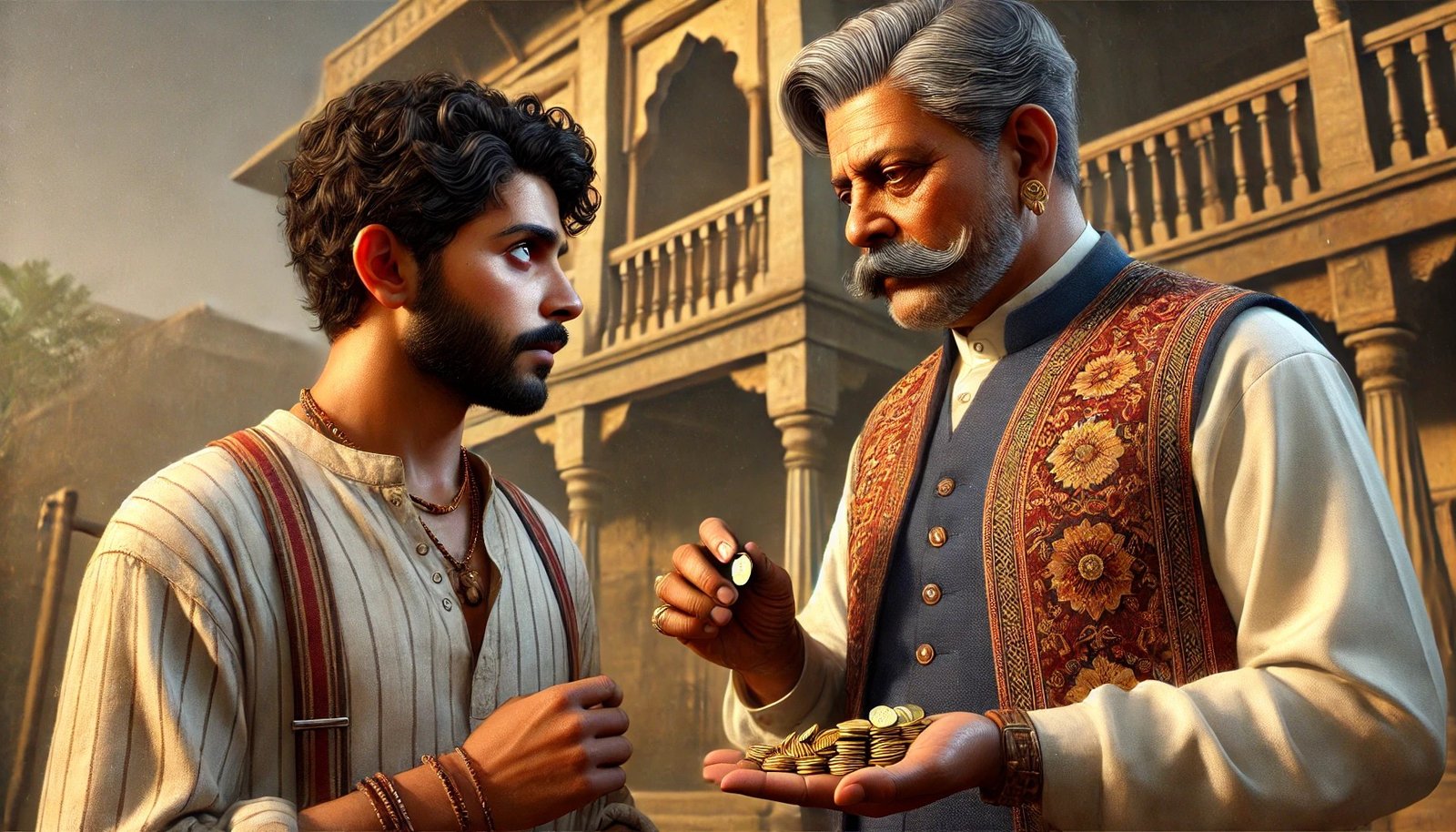
The deal was made, and the well now belonged to Ravi. He was overjoyed and immediately set about making plans to draw water from it for his fields. However, when he went to the well the next morning with his buckets, Bhola appeared, blocking his way.
"Where do you think you're going, Ravi?" Bhola asked, his voice dripping with false concern.
Ravi looked puzzled. "To draw water from my well, of course," he replied.
Bhola shook his head and smirked. "Ah, but I sold you the well, not the water within it. The water still belongs to me."
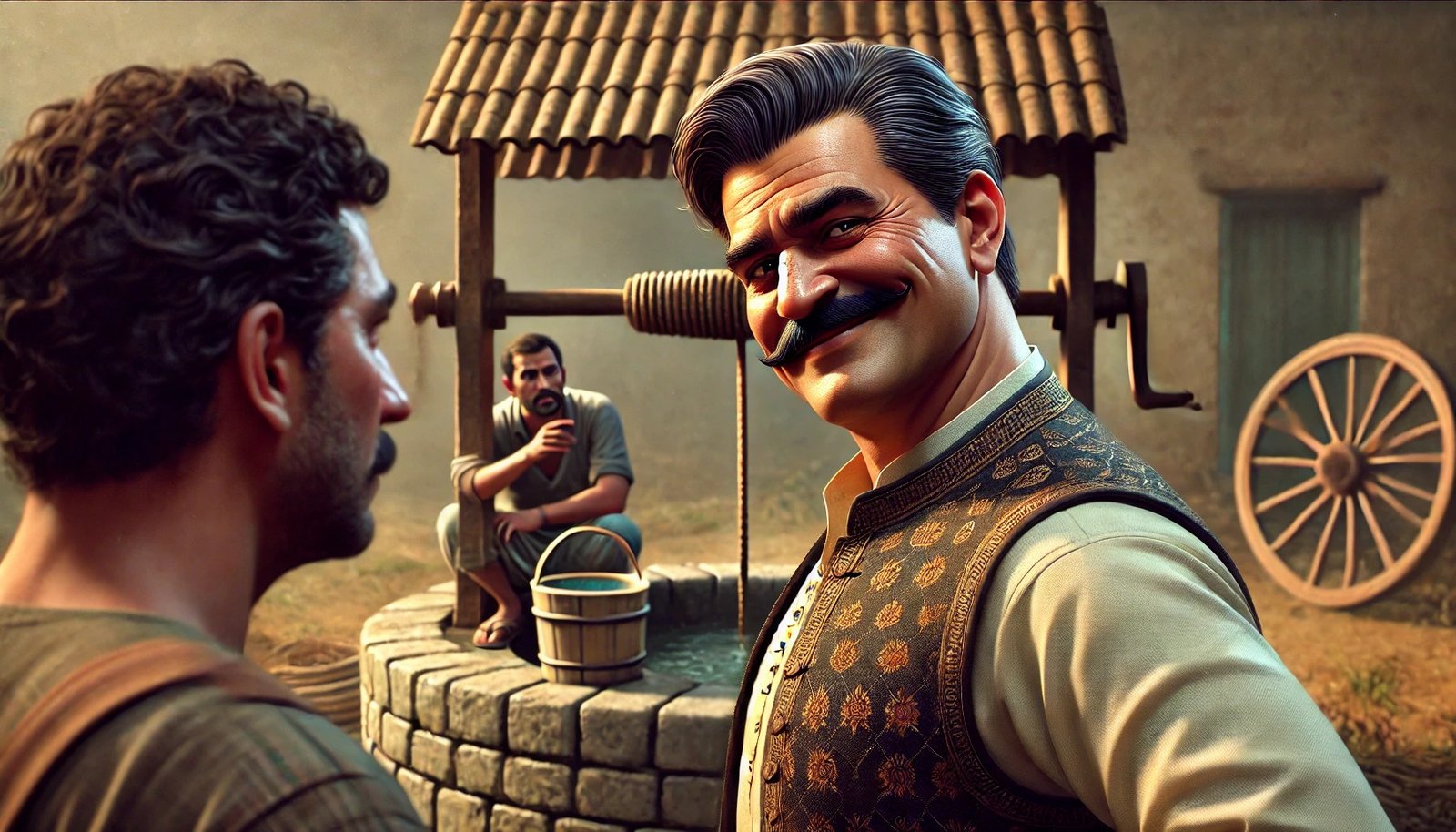
Ravi was stunned. He couldn't believe what he was hearing. "But what good is a well without water?" he protested. "I paid you a fair price for the well so I could water my crops!"
Bhola shrugged nonchalantly. "That may be true, but the water is mine. If you wish to use it, you must pay me rent for each bucket you draw."
Ravi's heart sank. He had already spent all his money on the well and had nothing left to pay Bhola for the water. Desperate and angry, he tried to reason with his neighbor, but Bhola was adamant. Seeing no other option, Ravi decided to seek justice from the emperor himself.
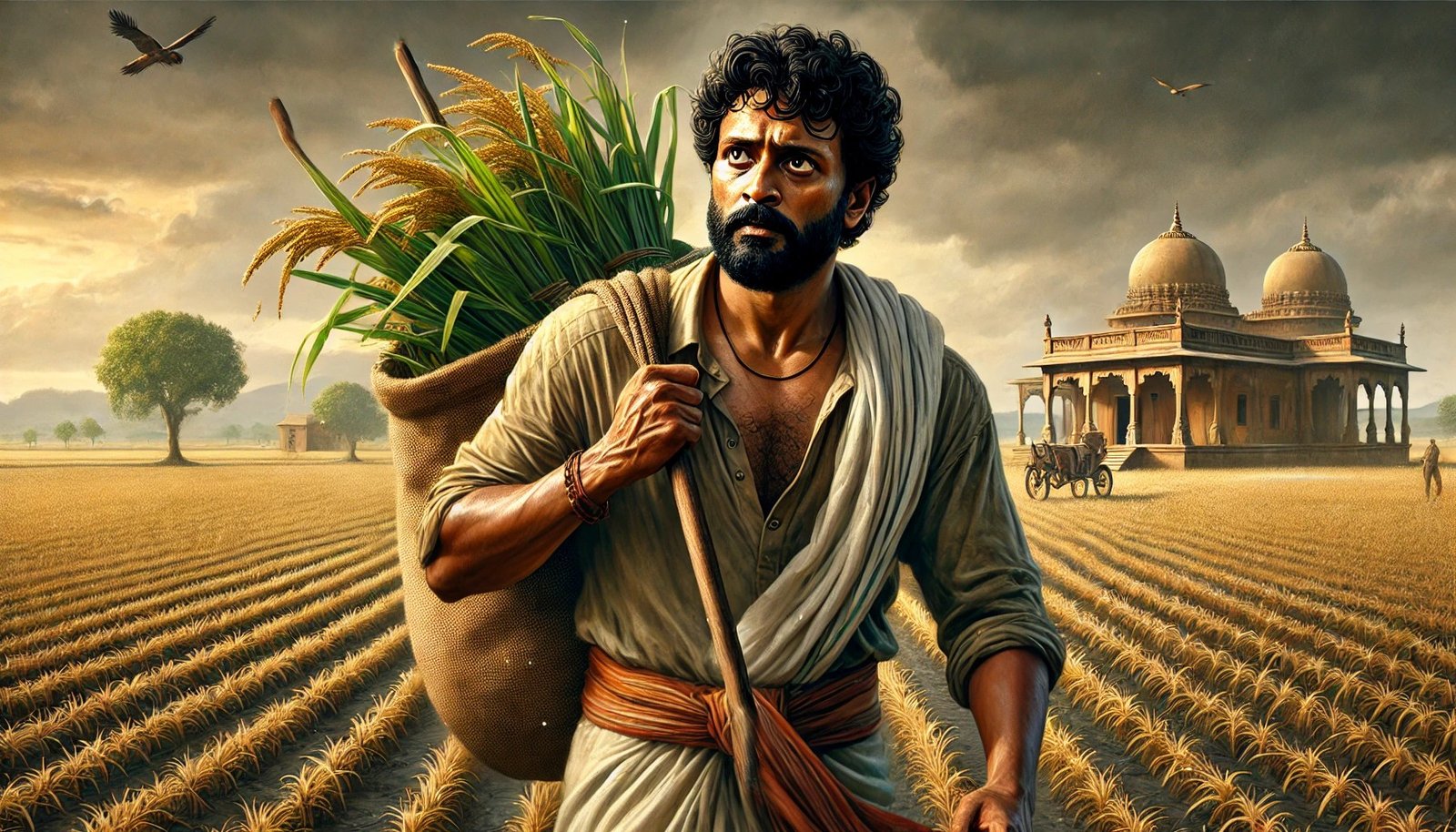
The very next day, Ravi set out on a long journey to the capital city, where the emperor's grand palace stood tall and majestic. It was a journey that took several days, but Ravi was determined. He knew that the emperor was a wise and just ruler, and he hoped that his plea would be heard.
Upon arriving at the palace, Ravi was awed by its grandeur. The walls were adorned with intricate carvings, and the halls echoed with the footsteps of courtiers and guards. Despite his nerves, Ravi gathered his courage and requested an audience with the emperor. After a long wait, he was finally summoned to the royal court.
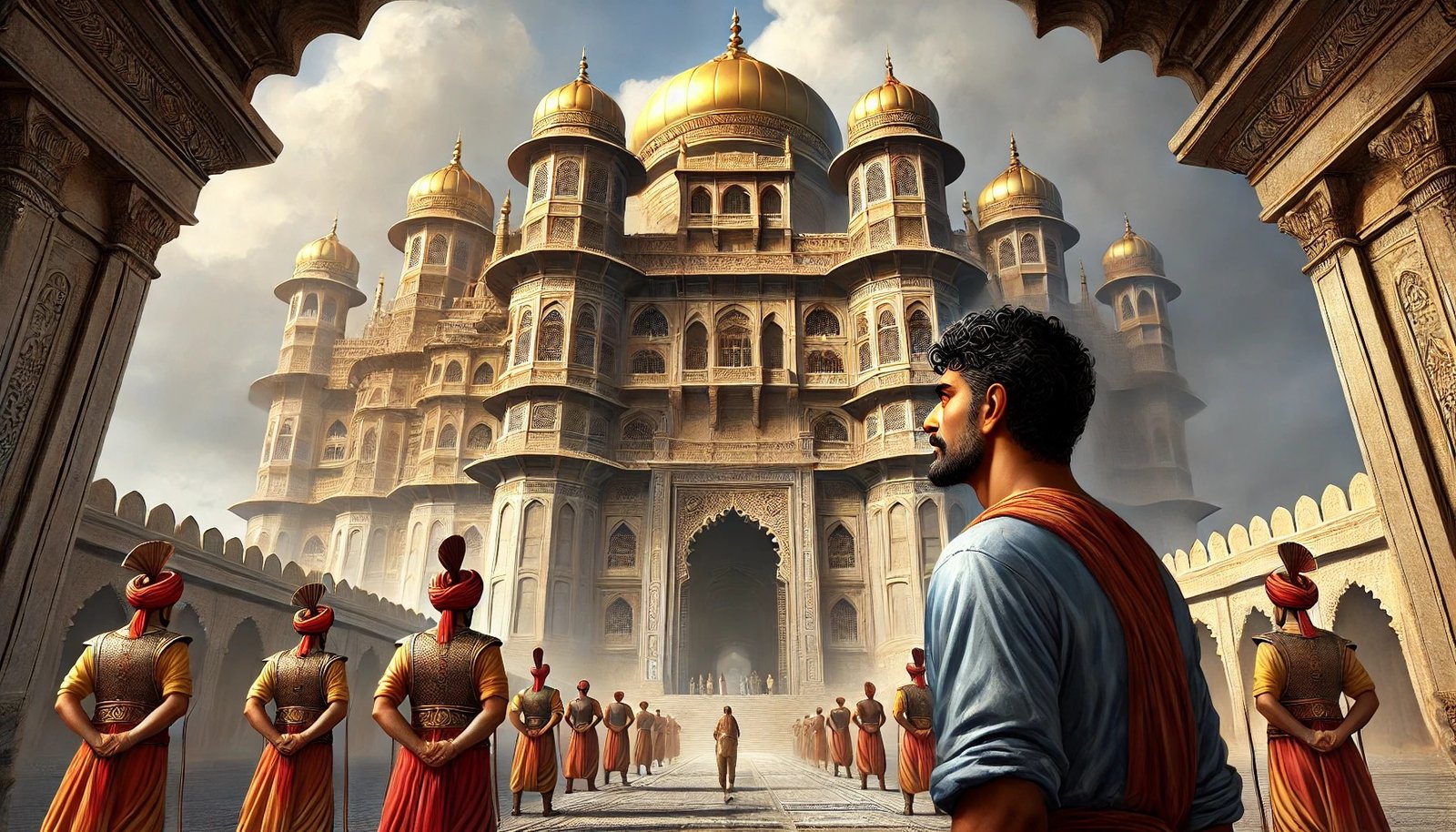
The emperor, a man known for his fairness, sat on his golden throne, listening intently as Ravi recounted his plight. The court fell silent as Ravi described how Bhola had sold him the well but refused to let him draw water from it.
The emperor's brow furrowed with concern as he turned to his most trusted courtier, Birbal, who was known far and wide for his wisdom and cleverness. "What do you make of this, Birbal?" the emperor asked.
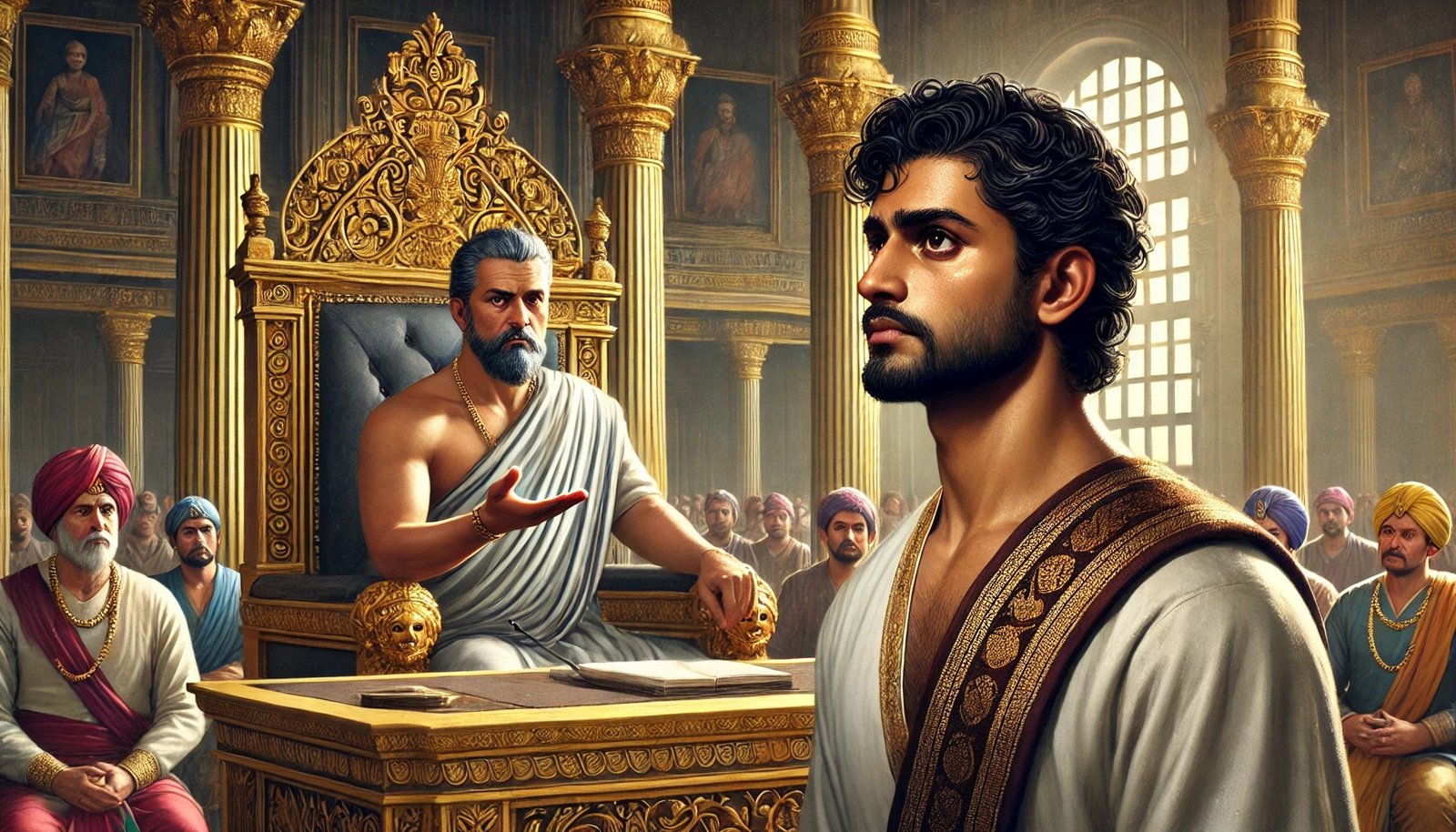
Birbal, who had been listening carefully, stroked his beard thoughtfully before addressing the court. "Your Majesty," he began, "this is a clear case of deceit. Bhola has attempted to take advantage of the farmer's need by selling him a well without the water, which is as good as selling an empty promise. Such trickery cannot go unpunished."
The emperor nodded in agreement. "But how should we resolve this matter?" he asked.
Birbal's eyes twinkled with a clever idea. "Let us summon Bhola to the court," he suggested. "We shall hear what he has to say."
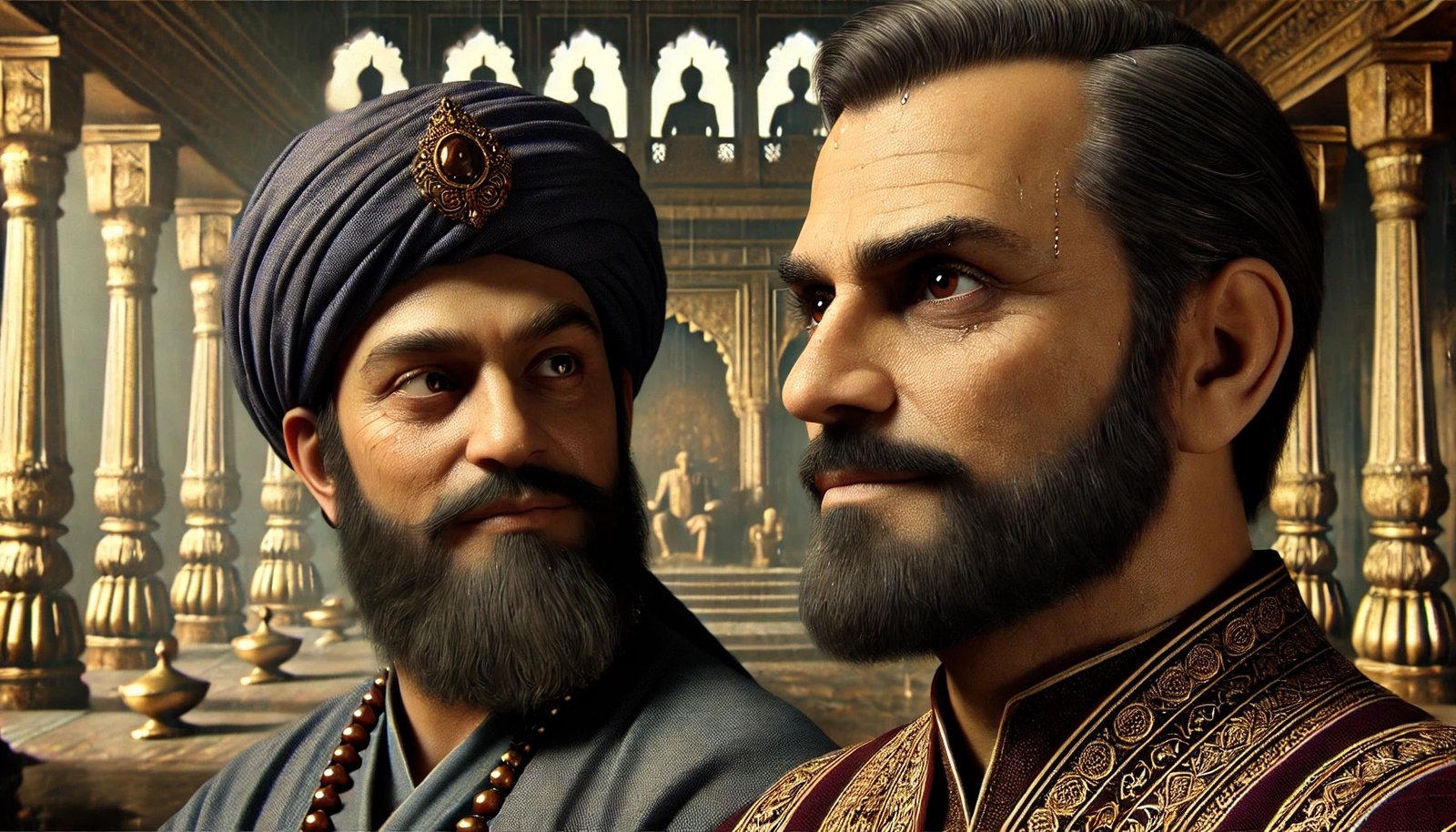
A messenger was quickly dispatched to the village, and Bhola was brought before the emperor's court. Bhola, who had been smugly confident that no one could force him to give up the water, tried to maintain his composure as he stood before the emperor.
The emperor looked down at Bhola sternly. "You sold the well to Ravi but claim that the water within it still belongs to you. Is this true?"
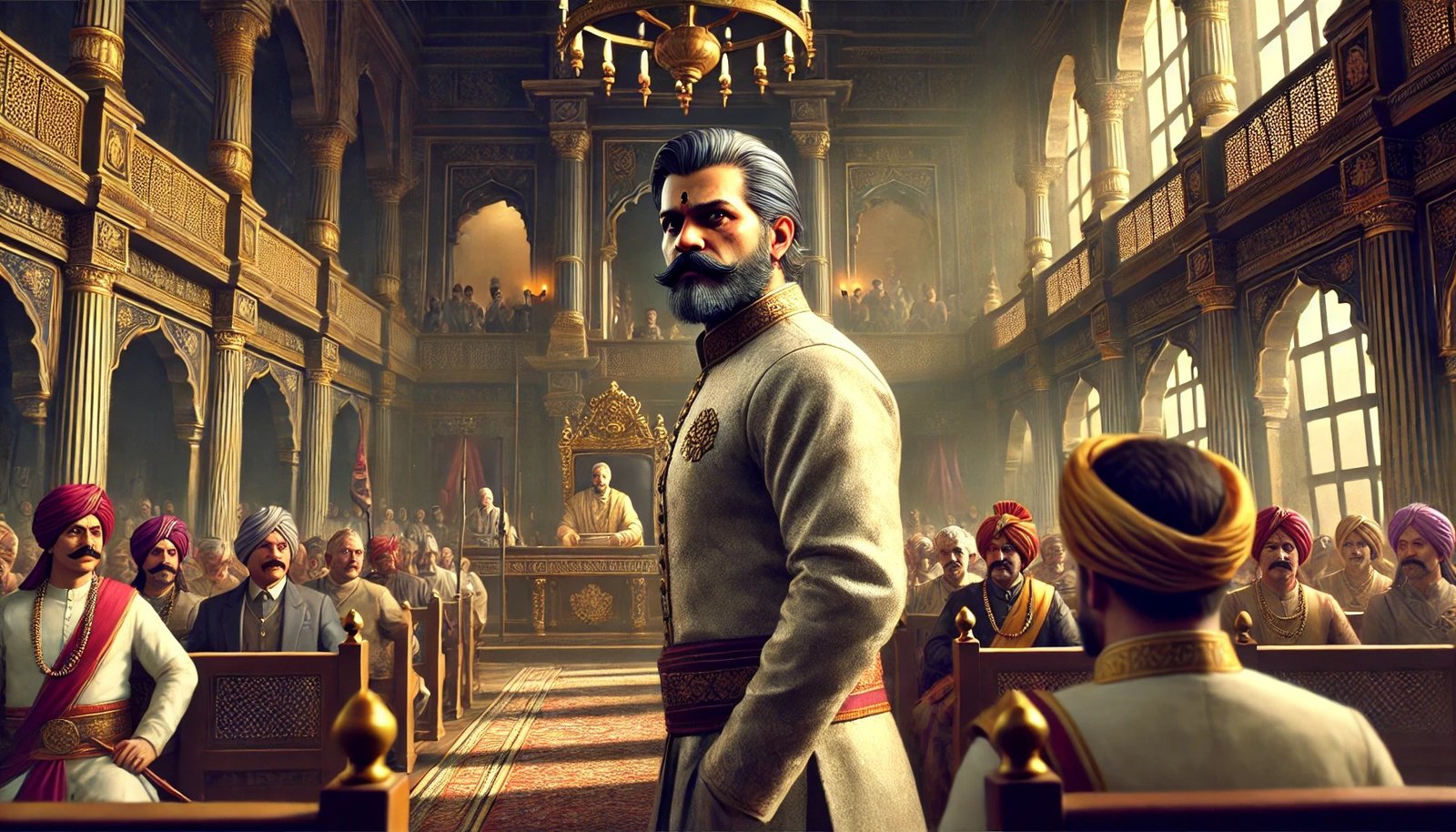
Bhola nodded, a smug smile on his face. "Yes, Your Majesty. I sold the well, not the water. The water is mine, and if Ravi wishes to use it, he must pay me rent."
The emperor glanced at Birbal, who stepped forward with a knowing smile. "Bhola," Birbal began, "since you claim that the water in the well belongs to you, you have two options. Either you pay rent to Ravi for storing your water in his well, or you must remove all the water from the well immediately."
Bhola's smug expression vanished, replaced by shock and panic. He hadn't expected this turn of events. Realizing that he was caught in his own trap, he stammered, "But… but that's impossible! I can't remove the water from the well!"
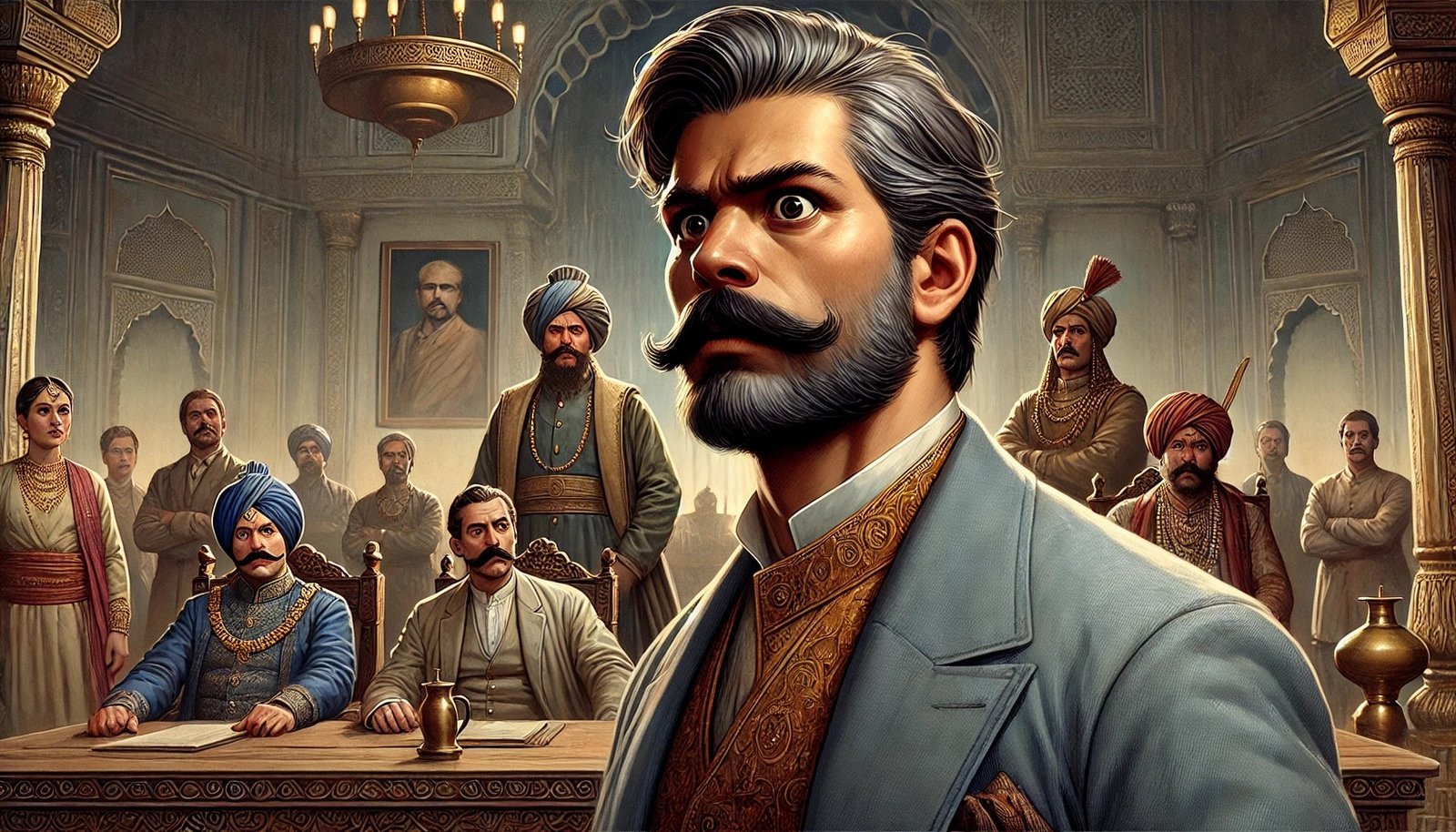
Birbal raised an eyebrow. "Then it seems you have no choice but to allow Ravi to use the water as he wishes, without demanding any further payment."
The emperor nodded in agreement. "Bhola, your greed and deceit have led you here. You must apologize to Ravi and make amends for your wrongdoing."
Humbled and ashamed, Bhola bowed his head. "I apologize, Your Majesty. I was wrong to deceive Ravi. I will no longer make any claims to the water, and I ask for his forgiveness."
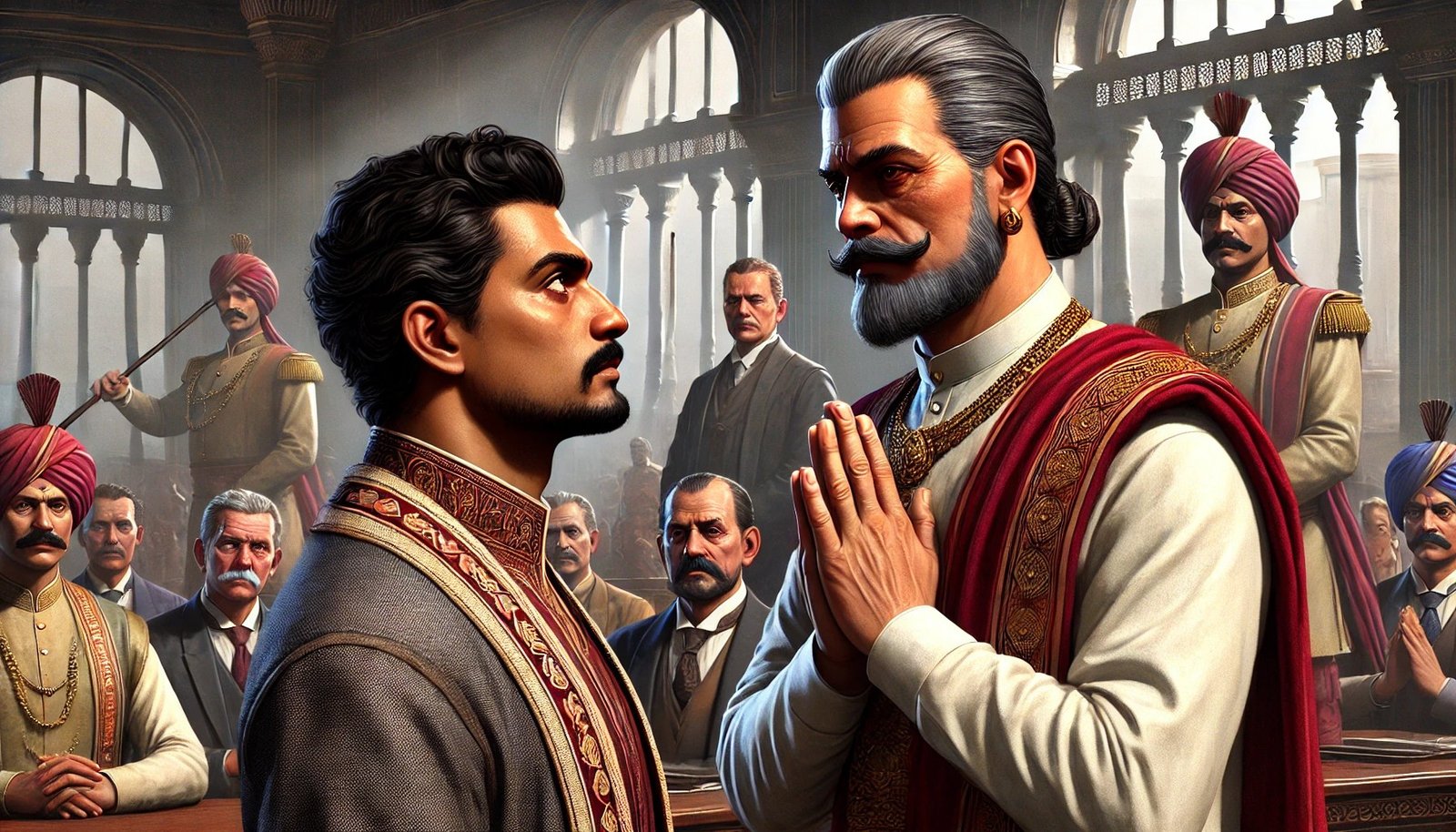
The emperor, satisfied with the resolution, turned to Ravi. "You have received justice today, and you may use the well and its water freely. Let this be a lesson to all that honesty and fairness will always prevail."
Ravi thanked the emperor and Birbal profusely before returning to his village. The news of the emperor's judgment spread quickly, and the villagers celebrated Ravi's victory over Bhola's greed.
From that day forward, Ravi's farm flourished like never before. The well provided ample water for his crops, and each harvest was more bountiful than the last. Bhola, on the other hand, learned the hard way that deceit would only lead to disgrace. He became more humble and honest in his dealings, and peace returned to the village.
And so, the wise rule of the emperor and the cleverness of Birbal ensured that justice was served, and the people of the village lived in harmony once again.
